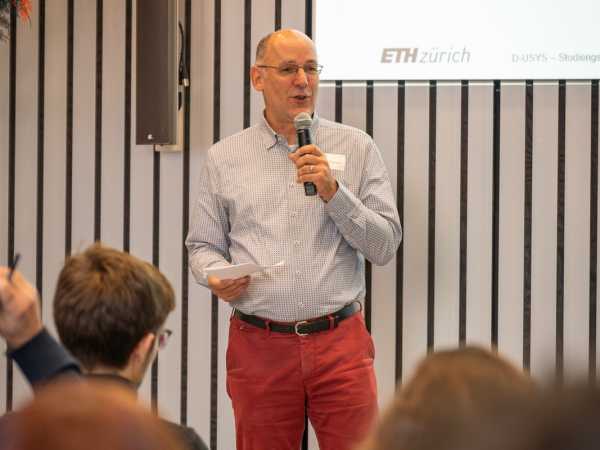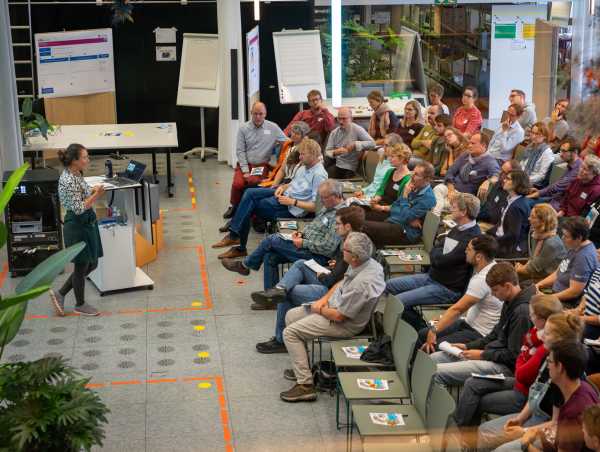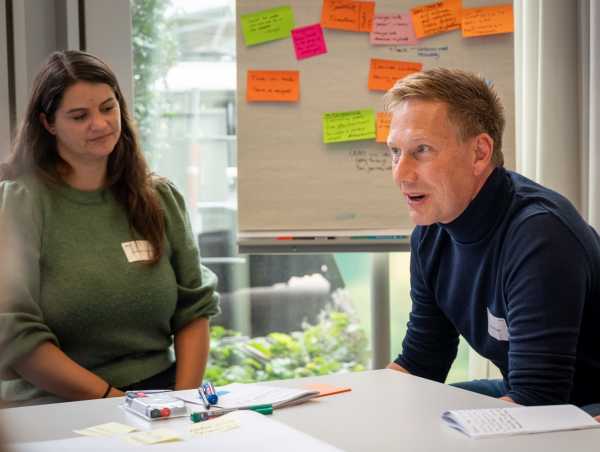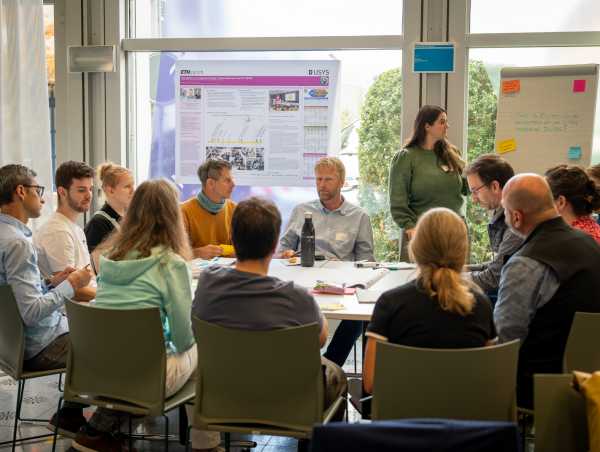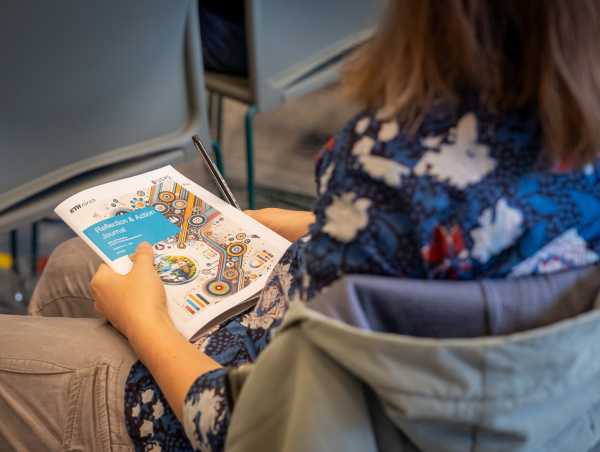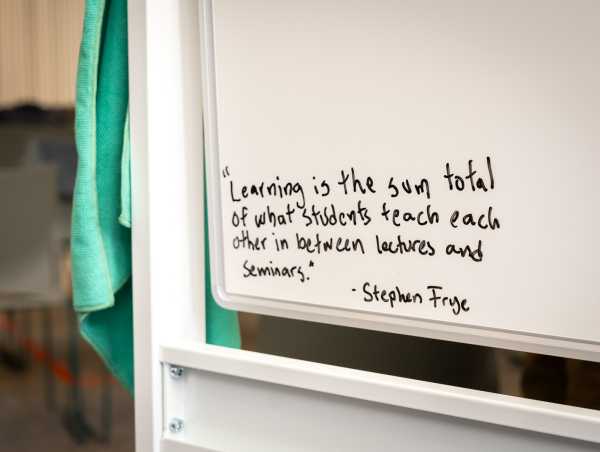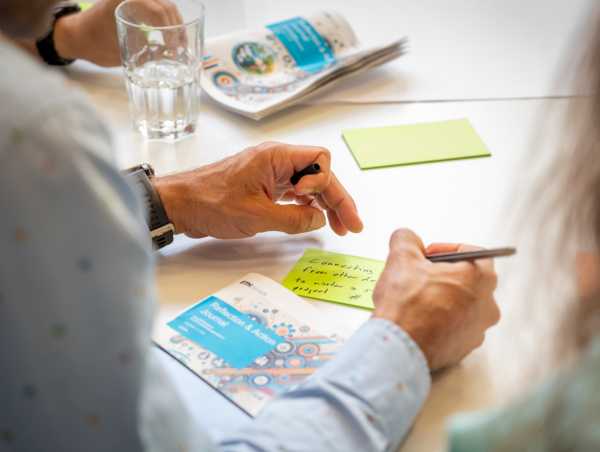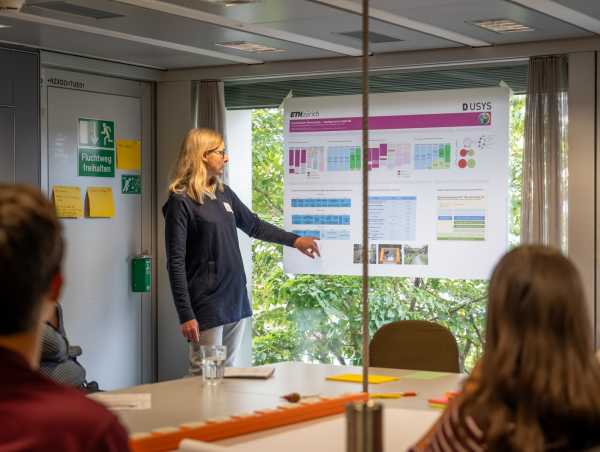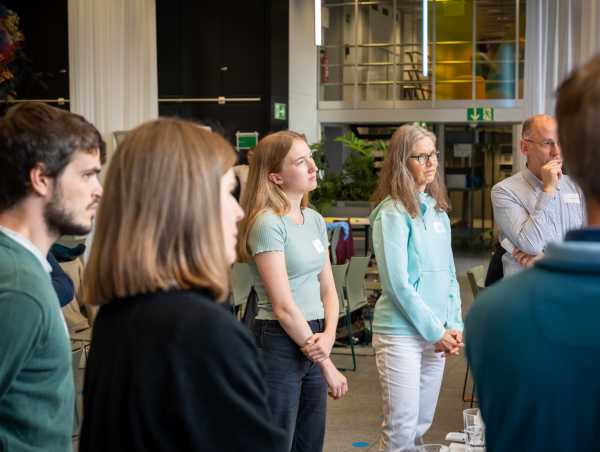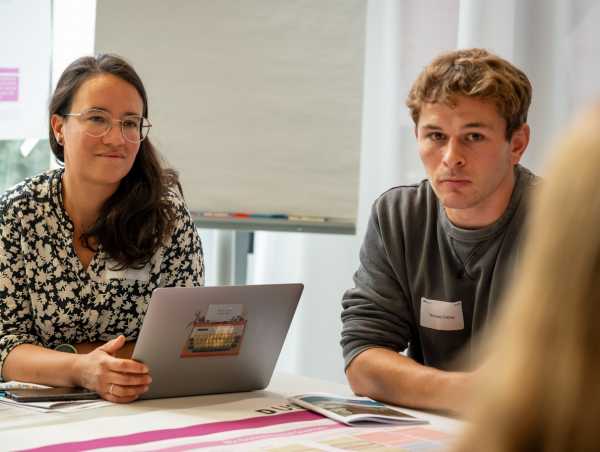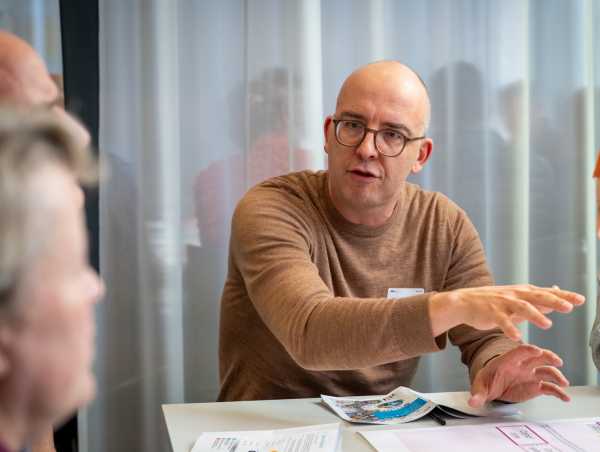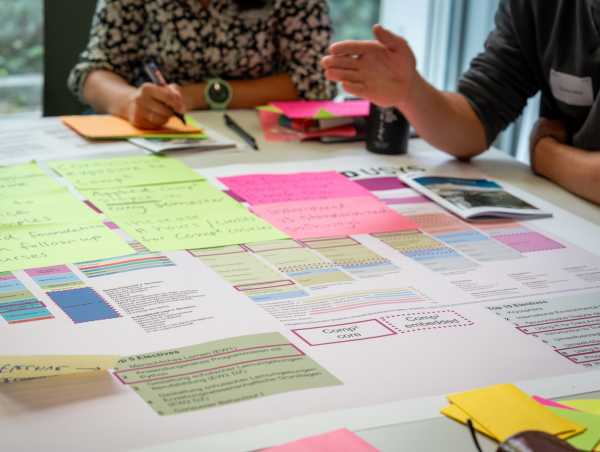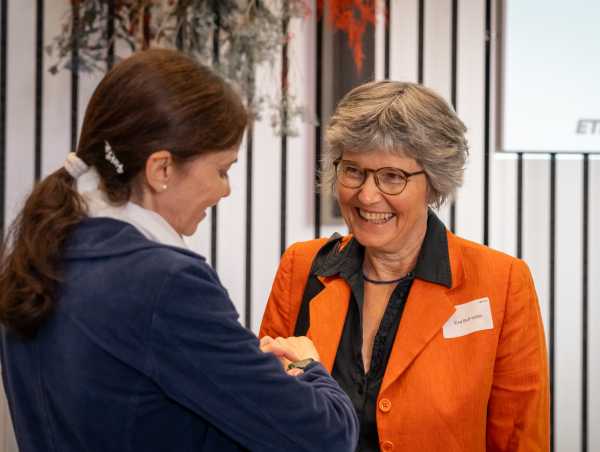
Studiengangsinitiative²: Revision of two degree programmes successfully launched
With the "Studiengangsinitiative²", the Department of Environmental Systems Science (D-USYS) is revising its two Bachelor's degree programmes in Agricultural Sciences and Environmental Sciences by 2027. What does it take to optimally prepare students for their professional future? Last Friday, around 95 members of D-USYS and ETH Zurich met for the kick-off.
Photos and video: Melinda Thulin
It is Friday morning, the last Friday before the official start of the semester. Around 95 people gather in the PBLabs, ETH's "Room for Project-Based Teaching" in the RZ building at Clausiusstrasse 59. The PBLabs was created as a "test field for classrooms of the future". The Studiengangsinitiative², which was officially launched at D-USYS, is actually operating in such a test field.
Thinking about priorities
"We really appreciate that you take a whole day to think about our curricula," says Harald Bugmann, Director of Studies of Environmental Sciences at D-USYS, welcoming the participants. Together with Emmanuel Frossard, Director of Studies of Agricultural Sciences, he heads the Studiengangsinitiative². Aim of the kick-off: to provide information about the current status of the project and to think about priorities together. A detailed brainstorming session in the form of an idea market is intended to sharpen the different topics and aspects of the project and bring them into a meaningful context. In short, there is a lot of discussion on this day. In different compositions, the attendees – professors, lecturers, study coordinators, students and other interested parties – move from one small group discussion to the next. There are six rounds in total, discussions on topics such as "transferable competencies", "student-centred development" or "structures of the curriculum".
Focus on competencies
"Working groups will be formed on the basis of these discussions," says Anouk N'Guyen, Educational Developer at D-USYS, explaining the procedure. "Concrete proposals on the respective topic are then developed there." The aim of the Studiengangsinitiative is to revise the two existing degree programmes on the basis of the ETH Competence Framework. The focus is on subject-specific, method-specific and transferable competencies. "We want to promote innovative teaching, strengthen practice-oriented learning and use synergies without the degree programmes losing their independence," N'Guyen continues.
-
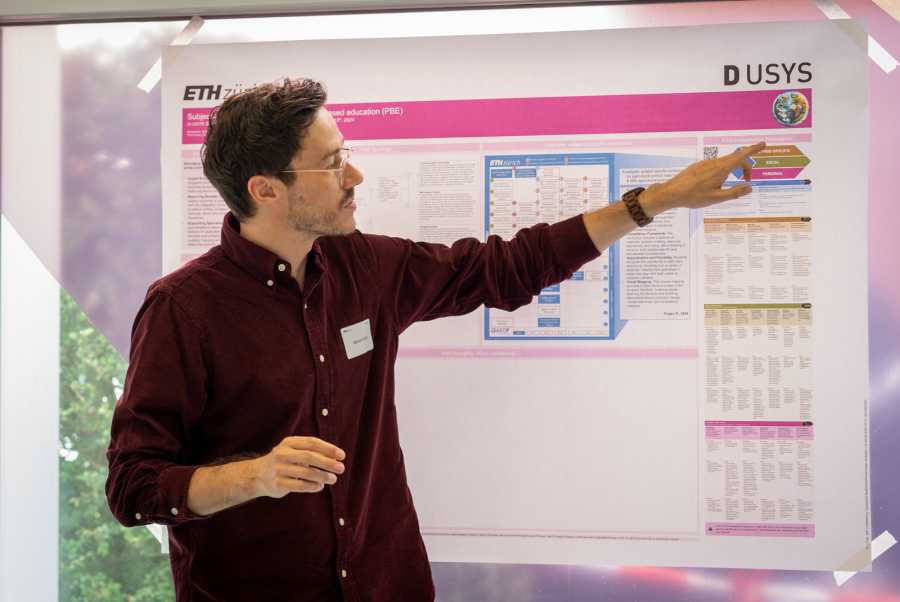
Manuel Sudau, Educational Developer at D-USYS -
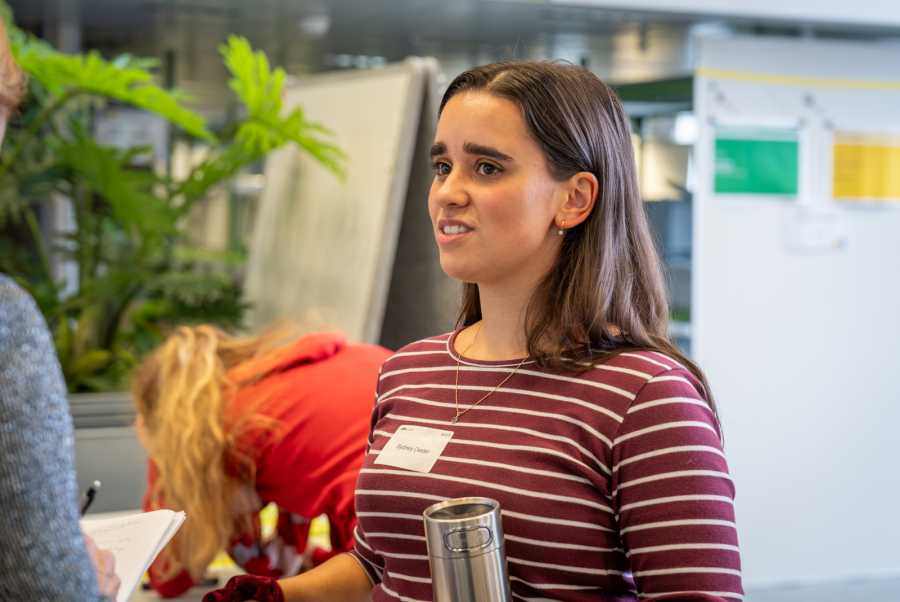
Sydney Oester, student of Environmental Sciences in her 5th semester -
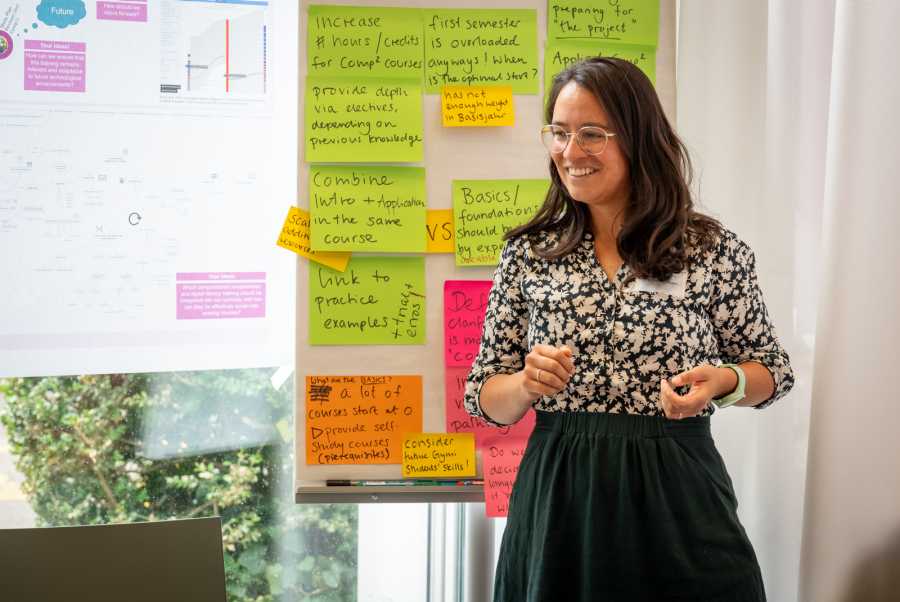
Anouk N'Guyen, Educational Developer at D-USYS
The big wave from PAKETH
As its name suggests, the "Studiengangsinitiative²" tackles both Bachelor's degree programmes at once. This is challenging in itself. Another challenge lies in the implementation of PAKETH. The project, initiated by ETH Rector Günther Dissertori, is intended to "give teaching more scope for development and more freedom for students", as the Rectorate puts it. What sounds good, however, means a lot of work behind the scenes. "We foresaw the wave that would come our way with PAKETH a year and a half ago," says Manuel Sudau, Educational Developer at D-USYS. "At the same time, however, we also saw a great opportunity to thoroughly review our degree programmes and to make significant qualitative improvements to the curricula." The two "Lehrspezis" Anouk N'Guyen and Manuel Sudau have been working with the entire teaching team at D-USYS since the beginning of 2023 to plan the Studiengangsinitiative² at D-USYS. And they reached a milestone in May of this year, when the project received funding from the ETH Innovedum Fund.
Agility in planning is required
In our fast-paced times, a degree programme must keep an eye on technological developments. It is about social trends, globalisation, technologisation and – last but not least – relevance on the labour market. Interactive and practical teaching methods are in demand, reliable quality assurance is required, and the changing number of students must also be taken into account. "So, it's very complex," say the two external advisors for the Studiengangsinitiative², Eva Buff Keller and Paul Krummenacher. "And D-USYS has done an excellent job so far!", they agree. However, they also see challenges in connection with PAKETH. As a long-standing lecturer and supervisor in the field of university didactics, Buff Keller is particularly committed to maintaining a high professional standard of didactics in teaching.
Next step: Participation concept
"As long as PAKETH has not yet been implemented, the framework conditions can change continuously," adds Paul Krummenacher. "But there is also a huge opportunity in this transition." The social psychologist has experience with development and clarification processes in large organisations. And that's exactly what appeals to him about this project, "that it's about enduring uncertainty". Together with Eva Buff Keller, who has already supported other degree programmes at ETH in participatory curriculum revision processes, he will support the project team of the Studiengangsinitiative² in the development of the participation concept.
Fit for the professional future
But back to the PBLabs. At the group table on the topic of "Employers' needs" is Sydney Oester, among others. She is studying Environmental Sciences in her 5th semester and is one of around 15 students who have found their way to the PBLabs. How can I use what I'm learning in my job in the future? This focus has not yet been sufficiently reflected in Oester's degree programme. In the various discussions, the Bachelor's student realised how different the needs of lecturers and students are and how important it is to talk to each other. "Everyone was very willing to do that today," she notes.
Lighthouse for other departments?
At the end of the day, Christian Sailer, Educational Developer in the Department of Civil, Environmental and Geomatic Engineering (D-BAUG), was also impressed by the "exceptionally good atmosphere" at the kick-off. "You really get the impression that everyone is working well together," he says with delight. "That's anything but a given!" The educational developer hopes that "a spark of this positive beginner's spirit" will also spread to his department. After all, adapting the five degree programmes at D-BAUG to PAKETH will also keep his team busy.
About the Studiengangsinitiative²
The Studiengangsinitiative² of D-USYS aims to work closely with external partners such as the PAKETH project team and the ETH Library. For the time being, the focus is on the two Bachelor's degree programmes, but the Master's degree programmes will also be included in the project.
The Studiengangsinitiative² concentrates on four core areas:
- Developing competence-oriented curricula that meet the requirements of the labour market.
- Introducing innovative teaching methods that optimally prepare students for the challenges of the future.
- Implementation of the PAKETH project with modified teaching and examination formats and an adapted Academic Calendar.
- Use of synergies between the degree programmes without losing their identity.
Fancy more? If you would like to take part in the Studiengangsinitiative² please contact by the end of the year.
About PAKETH
